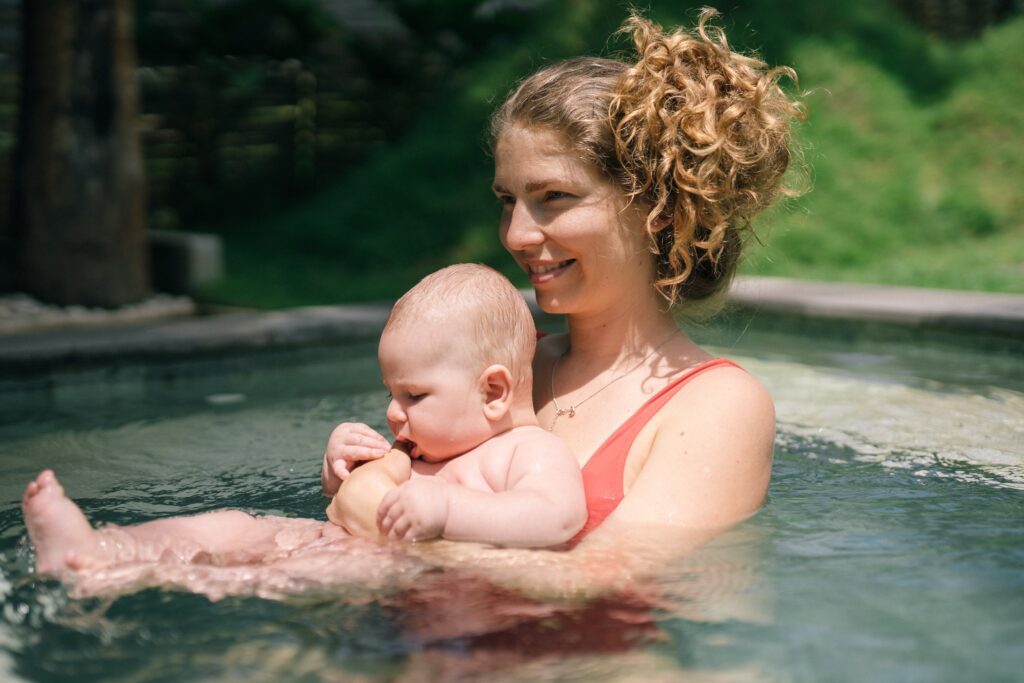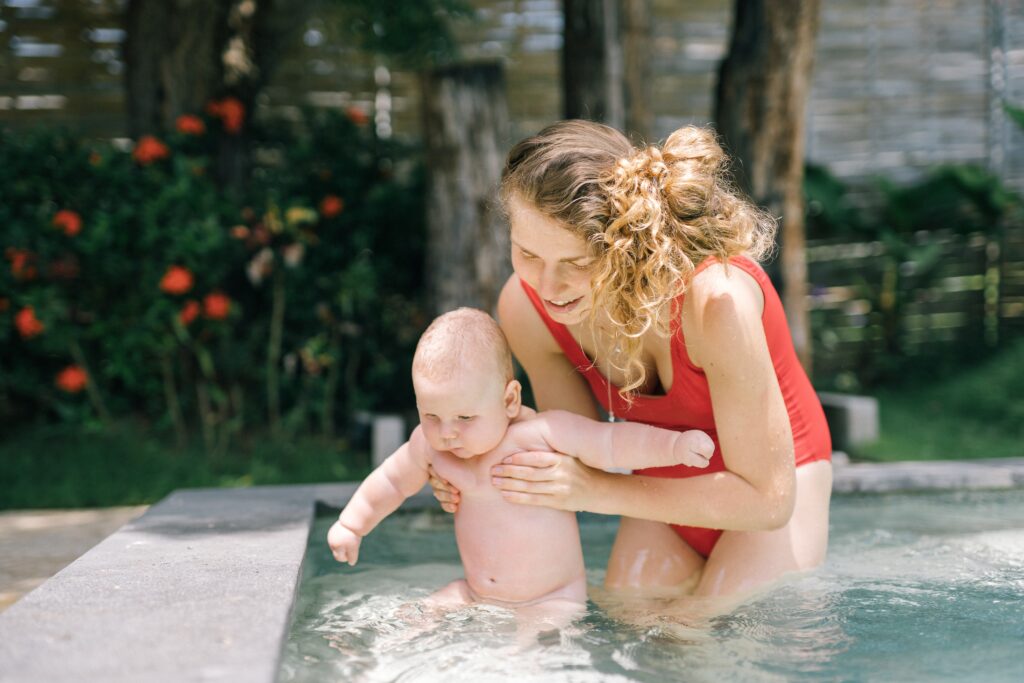Benefits of Infant Swimming for Baby’s Development
Today, it is becoming more popular to expand a baby’s comfort zone and feel equally free, strong, and confident in any element. This article will elaborate on some examples of what can be improved with infant swimming.
Most parents, when they hear about infant swimming, have the same question: “Why does a child need it, especially at that age?” Baby swimming is not just teaching kids the basics of swimming. It should not even be considered as training, since using this word with toddlers for up to a year would be wrong. It is better to classify early swimming as one of the ways in which a child can develop.
- Cognitive functioning
Skin is a sensory organ. No other organ in our body receives as much information as the skin. When swimming in a pool, a person receives a colossal amount of information, only from the mere fact that they are in contact with the environment. When a child dives, he/she feels minimal movement, bubbles, noise in the showers, etc. This is the formation of nerve tissue and an indispensable factor in the development of the brain. This way, a child gets pure experience through signals to the brain.
Swimming increases lung capacity, which promotes blood flow to the brain. Swimming enriches the brain with oxygen and helps it gather more strength.
- Sleep and appetite
Water relaxes and relieves stress, sleep becomes calmer and stronger. The nervous system is strengthened if we swim often. Also, a swimming pool or bath is a new environment for children, so they work harder to stay warm. This way they spend a lot of energy and burn a lot of calories, so their sleep and appetite become stronger.

When swimming in a pool, a person receives a colossal amount of information, only from the mere fact that they are in contact with the environment.
- Confidence
Psychologists say that a child, diving or swimming at a certain depth, overcomes the resistance of the water, develops traits such as purposefulness, perseverance, self-control, determination, discipline, and the ability to show independence. Children who swim from birth are more confident, sociable, and exhibit stronger leadership qualities.
- Coordination and balance
Swimming relieves the load from the spine, eliminates non-natural and non-physiological movements.
Babies move freely and actively in the water. Overcoming water resistance contributes to the strengthening of all muscle groups and the development of joints. Therefore, children who swim from birth learn faster how to sit down, stand up, crawl, and walk.

Overcoming water resistance contributes to the strengthening of all muscle groups and the development of joints.
- Speech development
When exercising in the pool, fine motor skills of the hands develop, which is associated with the nervous system, vision, attention, and perception of the child. Scientists have proven that the development of fine motor skills and speech are closely related.
Breathing exercises, such as puffing out the cheeks and controlled breathing are additional speech therapy exercises and they help improve pronunciation in the future.
Water is one of the best ways for the development of a child, it is gentle and very effective. It strokes the skin with optimal pressure, which improves blood circulation and strengthens the baby’s nervous system. Physical exercises that a child performs in water, starting from a very early age, contribute to an improved lung capacity while enriching the blood with oxygen.
Be careful, though””newborns and infants should never be left alone near bathtubs or pools!
About the author: Ana Jevtić is a sinologist and language enthusiast. Coming from a bilingual family, Ana developed a deep love for learning new languages and sharing her knowledge with others. Besides her daily job as a translator in a Chinese company, she spends her evenings teaching English to children.

